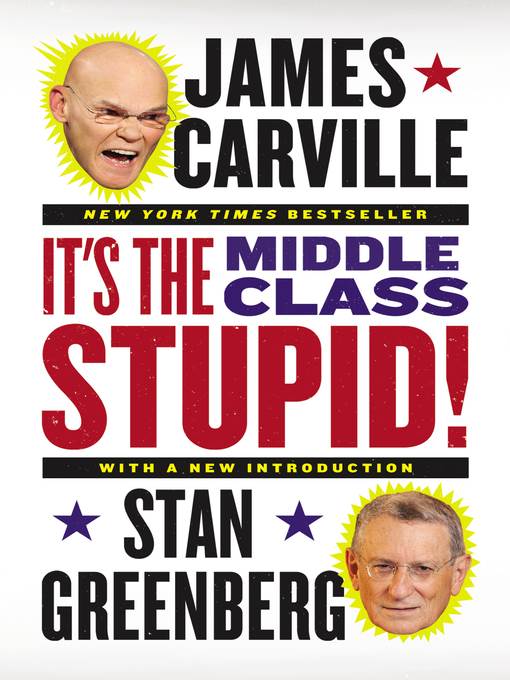
It's the Middle Class, Stupid!
کتاب های مرتبط
- اطلاعات
- نقد و بررسی
- دیدگاه کاربران
نقد و بررسی

July 16, 2012
Veteran Democratic campaigners and pollsters Carville (All's Fair: Love, War, and Running for the President) and Greenberg offer a plea to save America's floundering middle class. The duo paints a grim portrait of the status of the middle class, which one person described as "what makes America America." The widening chasm between the wages of the top 1% and everyone else has destabilized the middle class, for whom savings have been increasingly replaced by debt. The authors outline a grim cycle of "institutionalize inequality," declining wages, reduced benefits, and skyrocketing higher education prices, all of which that are blocking middle class children from top educations and, later on, career benefits. The authors target a politically-literate, liberal readership, and make no bones about their left-leaning politics. Greenberg and Carville are at their best when analyzing data and proposing detailed solutions, including massive campaign finance and health care reform, increased taxes on the top earners, and investment in infrastructure, research, science and education. Although the authors' heated and occasionally rambling rhetoric might be a turn-off to some, their central premise is vital and their proposals well-considered. Illus.

July 1, 2012
Liberal pundit Carville (40 More Years: How the Democrats Will Rule the Next Generation, 2009, etc.) and Democratic pollster Greenberg (Dispatches from the War Room: In the Trenches with Five Extraordinary Leaders, 2009, etc.) discuss campaign strategy and why a focus on the middle class is crucial to the Democrats' chances this November. The authors both advised Bill Clinton's 1992 campaign, the mantra of which was "it's the economy, stupid"--a relentless focus on economic policy that helped propel Clinton into the White House and shaped his domestic programs. The authors take a similar tack here, asserting that President Obama and other Democrats must zero in on the needs of the middle class in order to win the upcoming election: "When we think of an issue and a solution, we have to stop and think, How does this protect America's middle class?" It's a logical campaign aim, as the middle class makes up a majority of the electorate, especially if one defines "middle class" expansively, as the authors do, from families in poverty to those making up to $125,000 per year. Carville and Greenberg lean heavily on polling data to bolster their arguments. Among many other issues, the authors focus on health care reform and increased spending on education, and they suggest that "voters are not divided on the issue of raising taxes on rich people." The book is aimed squarely at Democrats, and, as might be expected, there is a certain amount of preaching to the choir. To the authors' credit, however, they are refreshingly specific in some of their policy recommendations in areas such as energy investment and campaign finance reform. For Democratic political junkies who enjoy straight-talk policy discussion.
COPYRIGHT(2012) Kirkus Reviews, ALL RIGHTS RESERVED.

July 1, 2012
Two well-known political figures begin by admitting to the failure of the Democratic Party to address concerns of the middle class. Political consultant Carville and researcher Greenberg offer background on their separate roads as, respectively, Cajun and northern Jewish political junkies that led them to the Democratic Party and the realization that the middle class had become the neglected American political constituency. At times, Carville and Greenberg alternate narration in a dialogue that takes to task the Democrats and urges policies aimed at providing relief to the beleaguered middle class on issues from taxation to health-care reform. They offer charts, statistics, and contrasting perspectives from the plainspoken sane world and the fog machine of politics. They admit the difficulty of clearly defining the middle class but settle on a broad definition that takes in three-quarters of the nation, noting that being middle class is an identity, a way of life, an idea and aspiration and a set of values. While this book's perspective is decidedly Democrat, the concerns will have appeal across the political spectrum as the election approaches. HIGH-DEMAND BACKSTORY: Political guru James Carville and savvy pollster Stan Greenberg team up for a presidential campaignoriented book that will be part of the media circus surrounding the election.(Reprinted with permission of Booklist, copyright 2012, American Library Association.)

























دیدگاه کاربران